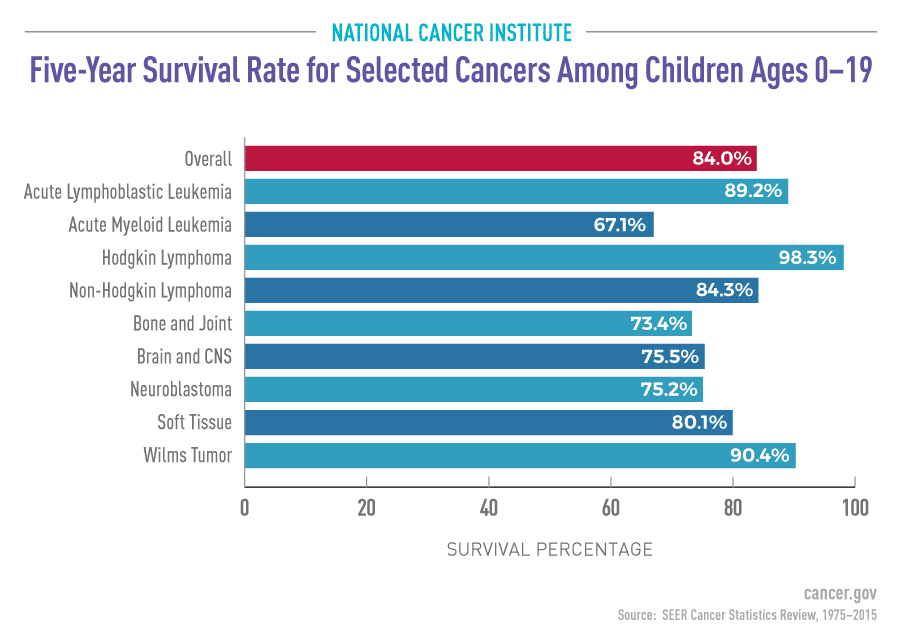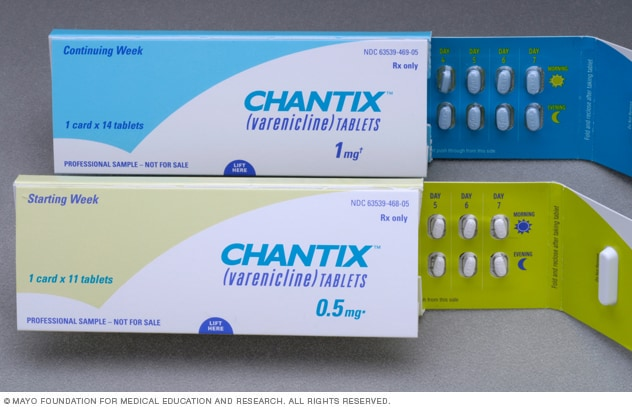Global Health Leadership: Insights from Atul Gawande
Global health leadership plays a crucial role in shaping strategies and policies that directly impact health outcomes worldwide. Atul Gawande, a prominent figure and former head of USAID’s Bureau for Global Health, has shed light on the consequences of disinvestment in global health funding, particularly during the recent cuts made by the Trump administration. The devastation of USAID programs has reverberated across the globe, leaving millions vulnerable to health crises and diminishing the United States’ position as a leader in global health initiatives. With ties to institutions like Harvard public health, Gawande emphasizes the necessity to restore these programs to secure the future of public health advancements. As the dialogue around the impact of USAID cuts continues, it becomes clear that global health leaders must advocate for robust funding and unwavering support to combat the challenges ahead.
In many ways, the discourse around leadership in global health can be viewed through the lens of international health governance and the mobilization of resources to address health disparities. Key figures like Atul Gawande are essential to this conversation, particularly concerning the repercussions of funding reductions which have jeopardized essential health services. Historical challenges, such as the dismantling of significant programs at USAID, have prompted urgent discussions about the sustainability of health interventions. The intersection of academic institutions, such as Harvard, and organizations focused on public health demonstrates the multifaceted nature of global health management. As we examine these dynamics, it becomes increasingly important to explore innovative solutions and partnerships that can restore and enhance health initiatives on a global scale.
The Impact of USAID Cuts on Global Health
The recent cuts to USAID have created a significant void in global health initiatives, impacting millions worldwide. Dr. Atul Gawande highlighted how the dismantling of crucial programs, which once had an expansive network monitoring diseases like Ebola and tuberculosis, has left countries anxious and vulnerable to health crises. The termination of over 85 percent of USAID operations translates into diminished ability to combat longstanding health challenges, reversing decades of progress in public health. With reduced funding, critical programs aimed at maternal and child health, as well as diseases prevention, now face existential threats, jeopardizing the health outcomes of countless individuals.
The repercussions of these USAID cuts extend beyond immediate health effects. The funding freeze affects research and medical innovation, especially at institutions such as Harvard T.H. Chan School of Public Health and affiliated centers. This stagnation in funding curtails advancements in healthcare practices, essential for accelerated responses to emerging global health threats. Moreover, as Gawande noted, without technical assistance provided historically by agencies like USAID, vaccination rates and essential health services are at risk of stagnation, potentially losing ground in the fight against preventable diseases.
Global Health Leadership: A Call to Action
In his remarks, Atul Gawande underlined the United States’ historical role as a global health leader, emphasizing that the country must not shy away from taking responsibility in health initiatives. With the challenges posed by recent funding cuts, it is imperative for both government leaders and healthcare professionals to rally together in restoring the integrity of U.S. health programs. While the current landscape may seem bleak, Gawande reassured that despite the setbacks, it is not too late to reclaim the vital role the U.S. once held in fostering international health. The responsibility lies in the hands of advocates and leaders willing to advocate for renewed funding and strategic perspectives on global health.
As future leaders in medicine and public health, Gawande urged students to remain committed to the ethical principles of science and human welfare. The fight against emerging health crises will require innovation and collaboration across institutions and borders. By galvanizing resources and expertise available within the Harvard community, as well as forming partnerships at the national and international levels, there remains an opportunity to restore the functionality of key health initiatives that once improved the lives of millions globally. The future of global health leadership hinges on these collective efforts, where individual talents can catalyze transformative changes in public health policy.
Restoring USAID Programs: Steps Forward
The path to restoring the impact of USAID solutions involves a concerted effort to revitalize programs that deliver necessary health services and scientific research. As highlighted by Gawande, essential actions revolve around re-establishing funding mechanisms and engaging diverse stakeholders in rebuilding these vital networks. The revival of support for programs that have successfully reduced maternal and child mortality, alongside efforts to combat infectious diseases, can yield significant health advancements. Fostering a renewed commitment within the U.S. government to increase global health funding is paramount to ensuring sustainable health systems can thrive even amidst political upheaval.
Additionally, educational institutions possess a critical role in this restoration effort. By integrating global health issues into their curricula, universities can equip the next generation of health professionals with the tools necessary to address these challenges. Programs that facilitate practical learning experiences in global health settings not only prepare students for real-life scenarios but also enhance the reach of health interventions. Engagement from academia can drive innovation in health solutions, working closely with agencies like USAID to effectively bridge the gap between research and practice. It is this synergy that will ultimately fortify the collective global health response.
The Role of Harvard Public Health in Global Solutions
Harvard’s T.H. Chan School of Public Health stands at the forefront of addressing global health challenges through rigorous research and policy advocacy. By leveraging its reputation and network, the school influences public health legislation and global health funding initiatives, advocating for effective solutions that address pressing health disparities. Through initiatives like Ariadne Labs, founded by Gawande, Harvard is uniquely positioned to spearhead research that targets critical health problems, such as maternal mortality and disease prevention. The school’s commitment to innovation ensures that tomorrow’s health leaders are equipped with the knowledge and skills necessary to carry on the mission of global health progress.
Moreover, the collaboration between Harvard and global partners enhances knowledge exchange and fosters a culture of responsive public health strategies. Harvard’s involvement in key research projects allows for the rapid dissemination of information and the scaling of successful interventions in health systems. This collaborative ethos is essential in an era where health challenges transcend borders, requiring immediate and effective responses. Through continuous engagement with policymakers, researchers, and health practitioners, Harvard remains a pivotal player in the ongoing global health discourse, setting the standard for evidence-based interventions that can make a long-lasting impact across the globe.
Advocating for International Health Funding
In light of the challenges presented by USAID funding cuts, advocating for international health funding has never been more critical. As Dr. Gawande emphasized, U.S. leadership in global health is vital, and with the current political climate, it is essential for advocates to unify in promoting the importance of sustained funding for health initiatives worldwide. The devastating effects of slashed budgets on programs that prevent disease and improve health outcomes underline the necessity for ensuring that these funding streams remain intact. Investing in global health is not just a matter of charity; it is an investment in a healthier, more stable world.
Moreover, recent studies demonstrate the correlation between robust health funding and improved socio-economic outcomes. For instance, when funding is allocated to maternal health programs, it directly correlates with reductions in infant mortality rates and increased access to healthcare services for vulnerable populations. As such, health funding advocacy should not only focus on maintaining existing support but also on amplifying the importance of sustained investments in long-term public health strategies. Engaging voices across sectors—healthcare professionals, public policy advocates, and community leaders—can present a unified front in calling for a significant reinstatement and expansion of international health funding initiatives.
The Future of Global Health Amidst Uncertainty
As highlighted by Gawande, the landscape of global health is increasingly uncertain, with emerging diseases posing continual threats. The reduction of U.S. leadership in this area presents a moment of reckoning, calling on nations worldwide to adapt and take up the mantle of responsibility. While there is hope that American public health will reengage in global partnerships, the possibility remains that other countries may step in to fill the gap left by reduced U.S. involvement. In this context, it becomes crucial for students and professionals in the field to be agile, ready to innovate and partner with governments and organizations worldwide to safeguard public health.
In terms of future opportunities, addressing health inequities and enhancing global access to medical resources will be paramount. Innovations in digital health and telemedicine, for instance, could catalyze changes in how health services are delivered, especially in underserved regions. As the world grapples with complex health challenges, the resilience of the global health community lies in its ability to adapt and collaborate across borders, ensuring that the fight against health threats persists despite the uncertainties ahead. With a focus on impactful and community-based solutions, there remains a bright horizon for those who are committed to global health advocacy.
Building a Resilient Health Infrastructure
To navigate the challenges posed by reduced funding and cut health programs, building a resilient health infrastructure is critical. Gawande’s reflections on the successes of USAID programs underscore the pivotal role that robust health systems play in readiness for health emergencies. Establishing a network that emphasizes preparedness, disease surveillance, and responsive healthcare delivery can enhance collective efforts to manage pandemics and outbreaks. By forging collaborative partnerships between governments, NGOs, and academic institutions, we can cultivate a proactive approach to health crises rather than reactive measures that fail to mitigate damage.
Additionally, investing in training and resources for healthcare workers is instrumental in strengthening health systems. As frontline responders, these individuals are pivotal in delivering essential services during crises, and their inability to access necessary tools due to funding cuts can have detrimental effects on health outcomes. Educational institutions should prioritize training programs that focus on crisis management and disease response strategies. By equipping healthcare professionals with the skills needed to lead in times of uncertainty, we bolster our collective capacity to address future global health challenges effectively.
The Role of Science and Medicine in Global Health
At the heart of global health progress lies the unwavering commitment to science and medicine. Gawande urged future health leaders to aspire towards maintaining integrity and dedication to scientific principles amidst varying challenges. The advancements made in medical research and public health interventions rely heavily on a solid grounding in evidence-based practices. Continued emphasis on scientific innovation, supported by adequate funding, allows for breakthroughs that can dramatically alter the course of health outcomes globally. The vitality of science and medicine must be championed, ensuring that it remains a core tenet of global health initiatives.
Furthermore, collaboration between researchers, healthcare providers, and policymakers is essential in translating scientific findings into effective health solutions. The complexities of global health demand a multifaceted approach, where diverse expertise is integrated into comprehensive public health strategies. Initiatives that support interdisciplinary dialogues and collaborative research efforts can enhance the effectiveness of health interventions. By fostering a culture that prioritizes knowledge sharing and joint problem-solving, the global health community can mobilize to tackle pressing health issues with greater urgency and impact.
Frequently Asked Questions
How has Atul Gawande influenced global health leadership during his tenure at USAID?
Atul Gawande significantly shaped global health leadership at USAID by improving emergency responses to outbreaks, leading initiatives that saved millions, and advocating for robust health funding. His tenure underscored the importance of global health funding in maintaining health infrastructure and partnerships.
What are the potential impacts of USAID cuts on global health leadership?
The cuts to USAID have devastated global health leadership, halting essential programs that monitor diseases and provide health services globally. This has led to increased morbidity and mortality in vulnerable populations, threatening decades of advancements in global health.
Why is global health funding crucial according to experts like Atul Gawande?
Global health funding is crucial as emphasized by experts like Atul Gawande because it supports vital health programs that reduce disease outbreaks, maternal and child mortality, and improves overall health outcomes in communities around the world.
What role does Harvard public health play in shaping future global health leaders?
Harvard public health plays a vital role in shaping future global health leaders by providing education, research opportunities, and fostering a commitment to addressing global health challenges, ensuring that graduates are equipped to lead in various health sectors.
How can restoring USAID programs benefit global health initiatives?
Restoring USAID programs can revitalize global health initiatives by enhancing emergency response capabilities, reinvigorating partnerships with local health systems, and ensuring sustained funding for critical health services, thus advancing global health leadership.
| Key Points |
|---|
| Atul Gawande’s remarks on the damage done to USAID under the previous administration and the impact on global health efforts. |
| Gawande emphasizes the necessity of restoring health and science infrastructure despite the significant setbacks. |
| Former USAID operations facilitated rapid response to epidemics, showcasing the importance of government support in health. |
| Ongoing funding battles threaten critical health research and public health initiatives that save lives. |
| Optimism remains as Gawande encourages new leaders in health; the need for collaboration in global health challenges is paramount. |
Summary
Global health leadership is being challenged in unprecedented ways, particularly through the recent adversities faced by U.S. agencies like USAID. Atul Gawande’s insights remind us of the importance of sustained commitment to developing and supporting global health initiatives. Although current circumstances may seem dire, a renewed focus on collaboration, infrastructure, and funding is essential for reversing the damage and ensuring a healthier future for millions worldwide.


